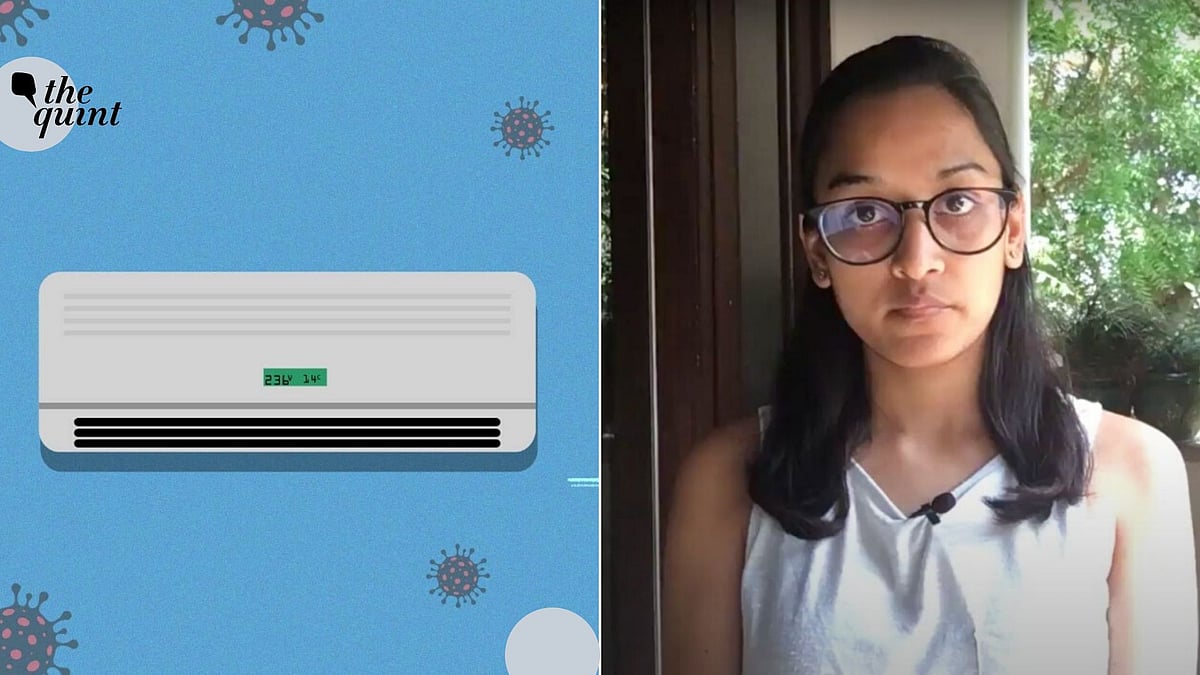Is It Safe to Use Air Conditioners at Home? Experts Weigh In
Dr Jacob John, formerly with ICMR, says that it all depends on context, and that there is no one rule for it.

advertisement
Video Editor: Kunal Mehra
As summer months firmly settle in and debate rages on whether this heat will kill the coronavirus, there is a second, more immediate concern – Is it safe to use air conditioners? Or will ACs increase the risk of spreading COVID-19?
The fear probably stems from a study that was published on 2 April about a restaurant in China which links nine cases of coronavirus infections in Guangzhou to one 63-year-old woman. Now, most of them hadn't had any contact with her, except they sat on tables near her in the same restaurant.
However, experts argue that home ACs – which is window and split ACs – might not pose a health risk. Dr Jacob John, who formerly headed the Indian Council for Medical Research's Centre for Advanced Research in Virology said there is no one rule to determine whether air conditioning is better or ventilation is.
Speaking to The Quint, Dr John said, “it depends on common sense and context”.
The World Health Organisation (WHO) has also explained that the novel coronavirus may not be airborne but aerosol-borne which means it could spread through liquid droplets when a person sneezes or coughs. So, if an infected person sneezes, will the AC carry the virus?
Ayan Banerjee, Professor of Physics, at Indian Institute of Science Education and Research in Kolkata says though it seems plausible that the AC might carry the infectious droplets, but the evidence to back this claim is very weak.
“It does seem plausible that an AC can create currents and can carry infectious droplets further in space. Even for this, the evidence is only correlative and that too, pretty weak. Also, there are so many factors governing the transmission of droplets that it is really impossible to say with any certainty that ACs, in public spaces, pose an added risk. I would say keep safe and maintain an adequate physical distance but there is no reason to fear ACs,” Banerjee added.
Banerjee is also a member of ISRC (Indian Scientists' Response to COVID-19), which is a voluntary group of scientists who are working towards fighting misinformation around the novel coronavirus.
Will the Temperature Kill the Virus?
Another pertinent question is about the optimum temperature for the virus to survive. Now, the central government on 24 April issued an advisory and said that the ideal temperature for domestic ACs should be 24-30 degrees centigrade. The advisory also added that the relative humidity should be between 40-70 percent.
The document suggests: “Recirculation of cool air by room air conditioners must be accompanied by outdoor air intake through slightly open windows and exhaust.”
One theory that is repeatedly coming up is that the virus will die in the Indian heat. Other types of coronaviruses and flu viruses have shown seasonality in the past. So could this happen with the novel coronavirus as well?
Anindita Bhadra, Associate Professor at Indian Institute of Science Education and Research in Kolkata, and a member of ISRC points out that “studies reveal that the virus could be killed when exposed to temperature above 70 degrees Celsius”. She also added that since it’s a new virus “we can’t make predictions”.
“Even if the summer heat affects the virus, it might come again when the temperature falls, so it is best to remain safe and cautious,” Bhadra added.
So while there are guidelines about how to use air conditioners and what is the optimum temperature for it, experts point out that there might not be a blanket rule for all situations.
You can read all our coronavirus fact-checks here.
(Not convinced of a post or information you came across online and want it verified? Send us the details on WhatsApp at 9643651818, or e-mail it to us at webqoof@thequint.com and we'll fact-check it for you. You can also read all our fact-checked stories here.)
(At The Quint, we question everything. Play an active role in shaping our journalism by becoming a member today.)